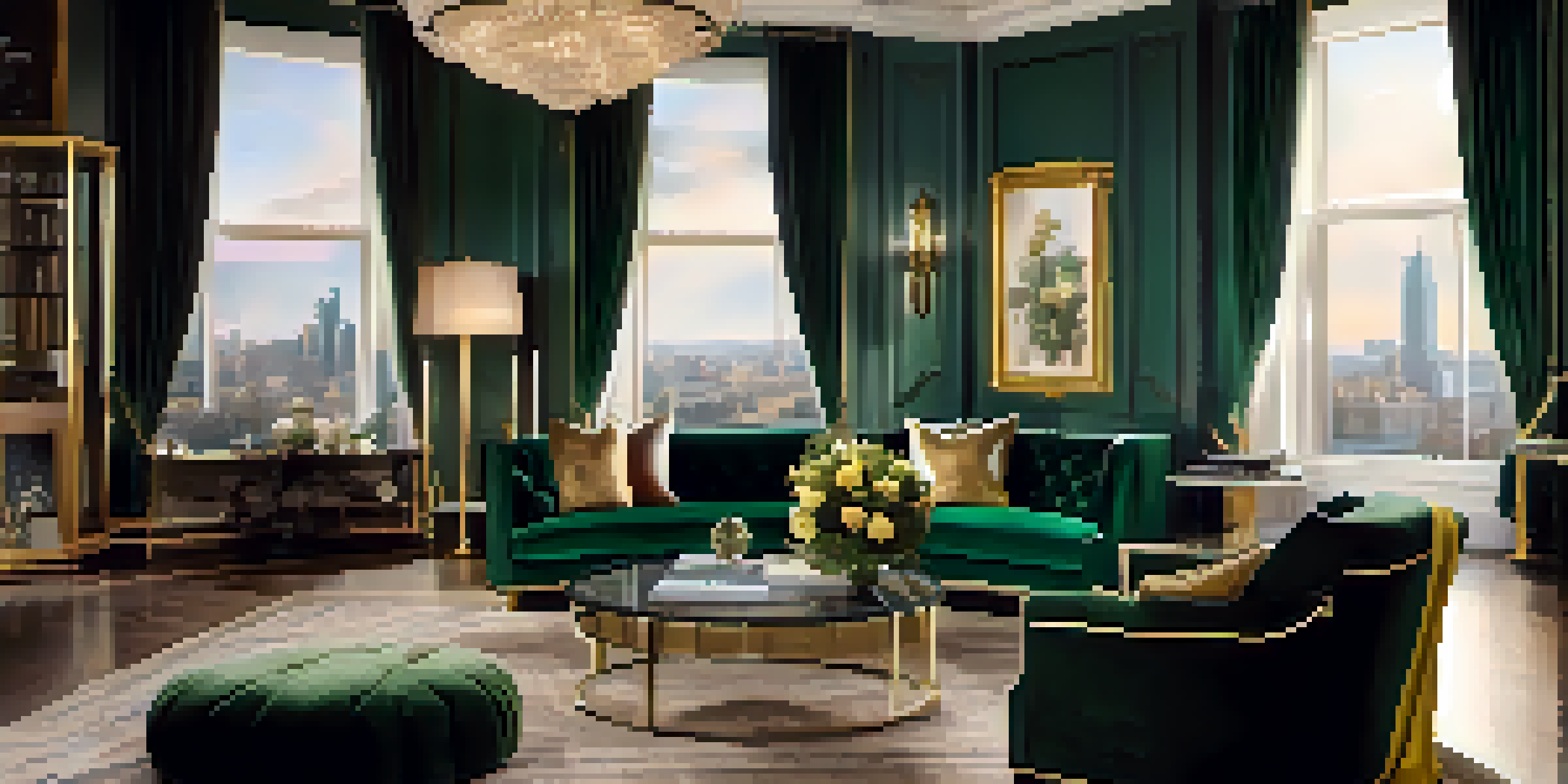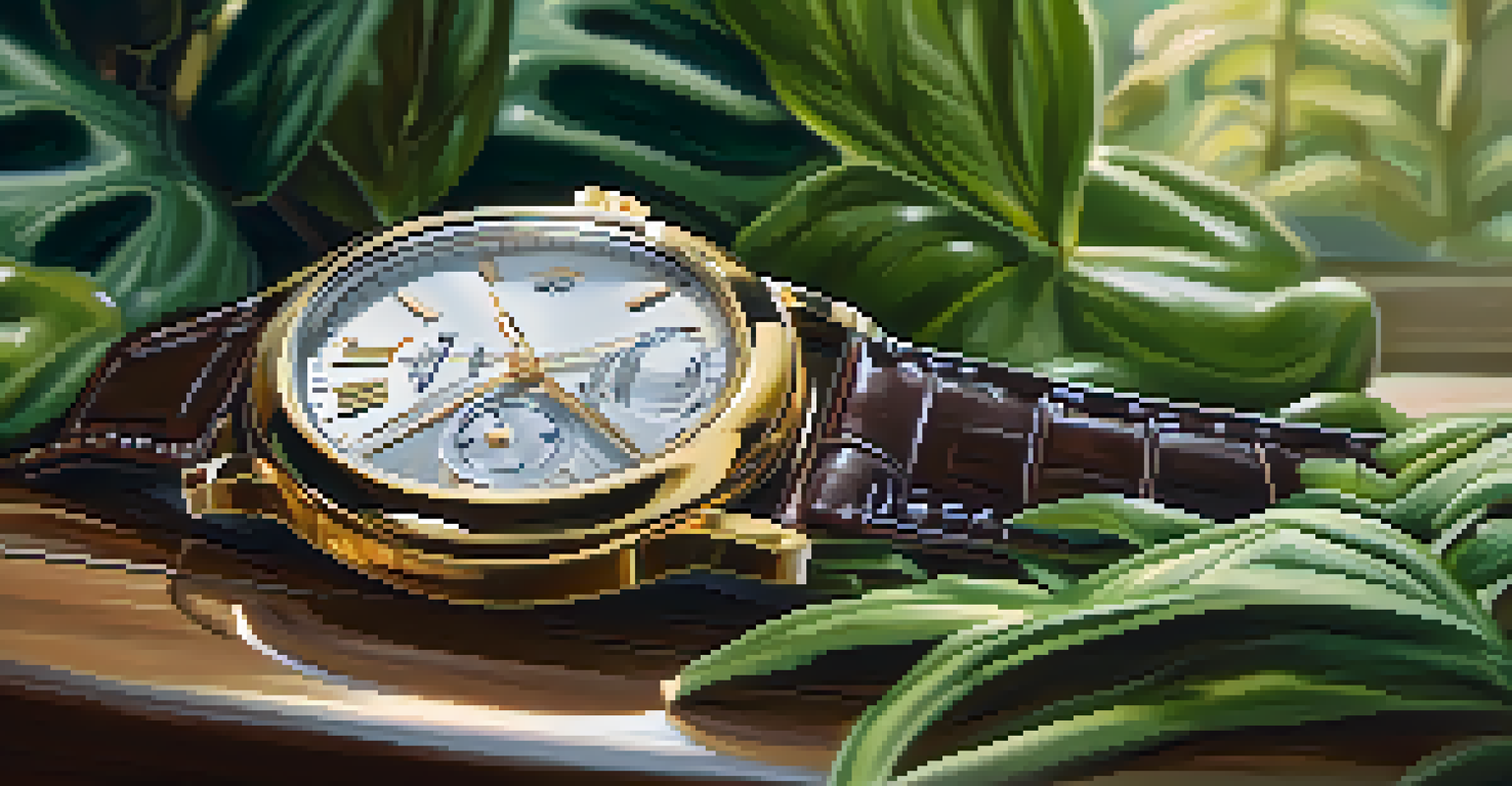The Impact of Social Media on Cultural Luxury Trends

Understanding Luxury in the Digital Age
Luxury has evolved significantly in the digital age, moving beyond traditional markers of wealth. Today, it often encompasses experiences and accessibility, influenced heavily by social media. Platforms like Instagram and TikTok have redefined what luxury means, making it more visible and aspirational to a broader audience.
Luxury must be comfortable, otherwise it is not luxury.
This shift toward digital has democratized luxury, allowing individuals to engage with high-end brands like never before. The curated images and influencer lifestyles we see online can spark desires and alter perceptions of luxury goods. As a result, what was once considered exclusive is now often within reach for many, thanks to the power of social media.
Ultimately, this transformation has blurred the lines between luxury and everyday life, as more people share their experiences with brands online. The impact is profound, as social media continues to shape consumer expectations and redefine luxury culture.
The Role of Influencers in Shaping Luxury Trends
Influencers play a pivotal role in the luxury market, acting as a bridge between brands and consumers. With their vast followings, they can create trends almost overnight, showcasing luxury items in relatable contexts. This ability to influence choices has made them key players in marketing strategies for high-end brands.

For instance, when an influencer shares a luxurious outfit or accessory, they don’t just promote a product; they create a lifestyle aspiration. Followers often look to influencers for style guidance, leading to increased sales and brand visibility. This phenomenon illustrates how social media can effectively elevate niche luxury brands to mainstream awareness.
Luxury Redefined by Social Media
Social media has democratized luxury, transforming it from exclusive goods to experiences that are more accessible and aspirational.
Moreover, the authenticity that influencers project can foster trust among their followers. When consumers see their favorite personalities enjoying luxury experiences, it creates a desire to be part of that world, further driving luxury trends.
Social Media as a Platform for Brand Storytelling
Social media provides luxury brands with a unique platform to share their stories and values. Through visually appealing content and engaging narratives, brands can connect with consumers on a deeper level. This storytelling aspect is crucial in a market where consumers are increasingly looking for authenticity and purpose.
In the world of luxury, it is not about what you have but about the experiences you create.
For example, many luxury brands now highlight their heritage, craftsmanship, and sustainable practices through social media campaigns. By sharing behind-the-scenes content and the artisans behind the product, brands can foster a sense of connection and loyalty. This approach not only attracts consumers but also reinforces the brand's luxury status.
As a result, social media has transformed how luxury brands communicate, making storytelling an essential part of their marketing strategy. This shift encourages consumers to invest in brands that resonate with their values and aspirations.
The Impact of User-Generated Content on Luxury Brands
User-generated content (UGC) is a game-changer for luxury brands, as it allows consumers to become brand ambassadors in their own right. When customers share their experiences with luxury products on social media, it adds an element of authenticity that brands can't replicate. This genuine content can significantly influence purchasing decisions.
For instance, seeing real people enjoying a luxury product can make it feel more attainable and desirable. Brands often encourage UGC by creating hashtags or challenges, inviting customers to showcase their purchases. This strategy not only builds community but also expands the brand's reach organically.
Influencers Drive Luxury Trends
Influencers significantly shape luxury trends by creating relatable lifestyles that resonate with consumers and encourage brand engagement.
Additionally, UGC can provide valuable insights into consumer preferences and trends. By analyzing this content, luxury brands can adapt their marketing strategies to better align with their audience's desires, ultimately enhancing their relevance in a fast-paced digital landscape.
Luxury Brands Embracing Inclusivity and Diversity
Social media has amplified discussions around inclusivity and diversity, prompting luxury brands to reevaluate their strategies. Consumers now expect brands to reflect a diverse range of identities and experiences in their marketing efforts. This shift has led many luxury brands to embrace more inclusive practices, from casting to product offerings.
For example, brands are increasingly showcasing models of different ethnicities, body types, and backgrounds in their campaigns. This not only resonates with a wider audience but also aligns with evolving societal values. By embracing diversity, luxury brands can foster a more inclusive image that appeals to modern consumers.
Moreover, engaging with a diverse audience can enhance brand loyalty and awareness. When consumers see themselves represented in luxury marketing, they are more likely to connect with the brand and support its initiatives, ultimately driving sales and brand growth.
The Rise of Sustainability in Luxury Trends
Sustainability has become a significant focus in the luxury sector, with social media playing a crucial role in this shift. Consumers are increasingly aware of environmental issues and demand transparency from brands regarding their practices. Social media allows luxury brands to showcase their commitment to sustainability and engage with eco-conscious consumers.
Many luxury brands are now sharing their sustainable initiatives, such as ethically sourced materials and eco-friendly manufacturing processes. This information, shared through engaging posts and stories, can influence consumer perceptions and purchasing decisions. Brands that prioritize sustainability can enhance their appeal in a market that values ethical consumption.
Sustainability is Key for Luxury Brands
Luxury brands are increasingly prioritizing sustainability, using social media to showcase their commitment to ethical practices and attract eco-conscious consumers.
As a result, social media is becoming an essential tool for luxury brands to not only market their products but also advocate for a sustainable future. This trend reflects a broader societal shift towards responsible consumption, where luxury and sustainability can coexist harmoniously.
The Future of Luxury Trends in a Social Media World
As social media continues to evolve, so too will the luxury landscape shaped by its influence. The rise of emerging platforms and technologies, such as augmented reality and virtual reality, is set to redefine how consumers interact with luxury brands. These innovations will likely create immersive experiences that enhance the allure of luxury.
Furthermore, brands will need to stay agile and adapt their strategies to keep pace with changing consumer preferences. This includes leveraging data analytics to understand trends and engage audiences effectively. Luxury brands that can navigate these shifts will be well-positioned for success in a highly competitive market.

Ultimately, the future of luxury trends will hinge on the ongoing dialogue between brands and consumers facilitated by social media. By embracing this dynamic relationship, luxury brands can continue to thrive and remain relevant in an ever-changing cultural landscape.